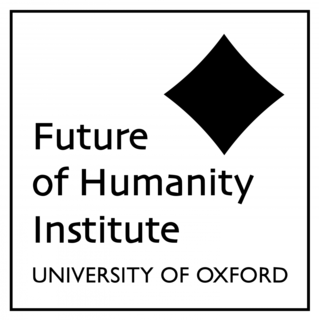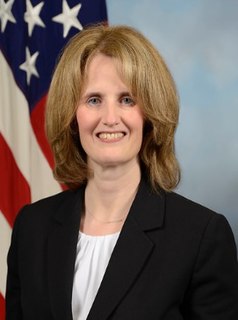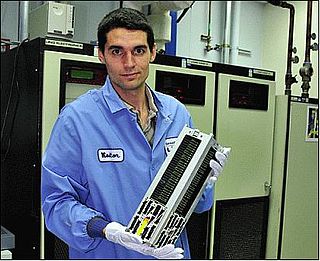The Policy Analysis Market (PAM), part of the FutureMAP project, was a proposed futures exchange developed, beginning in May 2001, by the Information Awareness Office (IAO) of the United States Defense Advanced Research Projects Agency (DARPA), and based on an idea first proposed by Net Exchange, a San Diego, California, research firm specializing in the development of online prediction markets. PAM was shut down in August 2003 after multiple US senators condemned it as an assassination and terrorism market, a characterization criticized in turn by futures-exchange expert Robin Hanson of George Mason University, and several journalists. Since PAM's closure, several private-sector variations on the idea have been launched.
Prediction markets are exchange-traded markets created for the purpose of trading the outcome of events. The market prices can indicate what the crowd thinks the probability of the event is. A prediction market contract trades between 0 and 100%. It is a binary option that will expire at the price of 0 or 100%. Prediction markets can be thought of as belonging to the more general concept of crowdsourcing which is specially designed to aggregate information on particular topics of interest. The main purposes of prediction markets are eliciting aggregating beliefs over an unknown future outcome. Traders with different beliefs trade on contracts whose payoffs are related to the unknown future outcome and the market prices of the contracts are considered as the aggregated belief.
Collaborative intelligence characterizes multi-agent, distributed systems where each agent, human, or machine is uniquely positioned with autonomy to contribute to a problem-solving network. Collaborative autonomy of organisms in their ecosystems makes evolution possible. Natural ecosystems, where each organism's unique signature is derived from its genetics, circumstances, behavior and position in its ecosystem, offer principles for design of next generation social networks to support collaborative intelligence, crowd-sourcing individual expertise, preferences, and unique contributions in a problem-solving process.

The Disruptive Technology Office (DTO) was a funding agency within the United States Intelligence Community. It was previously known as the Advanced Research and Development Activity (ARDA). In December 2007, DTO was folded into the newly created IARPA.
Jason Gaverick Matheny is the Founding Director of the Center for Security and Emerging Technology and former Director of Intelligence Advanced Research Projects Activity. Besides his work on emerging technologies and catastrophic risks, Matheny is recognized for having popularized the concept of cultured meat, after co-authoring a seminal paper on cultured meat production in the early 2000s and founding New Harvest, the world's first non-profit organization dedicated to supporting in vitro meat research.

The Future of Humanity Institute (FHI) is an interdisciplinary research centre at the University of Oxford investigating big-picture questions about humanity and its prospects. It was founded in 2005 as part of the Faculty of Philosophy and the Oxford Martin School. Its director is philosopher Nick Bostrom, and its research staff and associates include futurist Anders Sandberg, engineer K. Eric Drexler, economist Robin Hanson, and Giving What We Can founder Toby Ord.

Artificial intelligence applications have been used in a wide range of fields including medical diagnosis, stock trading, robot control, law, scientific discovery and toys. However, many AI applications are not perceived as AI: "A lot of cutting edge AI has filtered into general applications, often without being called AI because once something becomes useful enough and common enough it's not labeled AI anymore." "Many thousands of AI applications are deeply embedded in the infrastructure of every industry." In the late 1990s and early 21st century, AI technology became widely used as elements of larger systems, but the field is rarely credited for these successes.

Lisa J. Porter is an American scientist and founding Director of the Intelligence Advanced Research Projects Activity. Prior to this position, she was the Associate Administrator for Aeronautics Research at NASA and a senior scientist in the Advanced Technology Office of the Defense Advanced Research Projects Agency.

Jagadish Shukla is an Indian meteorologist and Distinguished University Professor at George Mason University in the United States.
The TechCast Project uses collective intelligence to forecast emerging technologies, social trends and wild cards for planners and decision makers. Founded at George Washington University years ago, their website (www.TechCastGlobal.com) pools background data and the knowledge of 130 experts worldwide to forecast breakthroughs in all fields and to assess their economic and social impact. Results are subscribed to corporations, governments, and the public around the globe.

Zooniverse is a citizen science web portal owned and operated by the Citizen Science Alliance. It is home to some of the internet's largest, most popular and most successful citizen science projects. The organization grew from the original Galaxy Zoo project and now hosts dozens of projects which allow volunteers to participate in crowdsourced scientific research. It has headquarters at Oxford University and the Adler Planetarium. Unlike many early internet-based citizen science projects which used spare computer processing power to analyse data, known as volunteer computing, Zooniverse projects require the active participation of human volunteers to complete research tasks. Projects have been drawn from disciplines including astronomy, ecology, cell biology, humanities, and climate science.

The Joint Polar Satellite System (JPSS) is the latest generation of U.S. polar-orbiting, non-geosynchronous, environmental satellites. JPSS will provide the global environmental data used in numerical weather prediction models for forecasts, and scientific data used for climate monitoring. JPSS will aid in fulfilling the mission of the U.S. National Oceanic and Atmospheric Administration (NOAA), an agency of the Department of Commerce. Data and imagery obtained from the JPSS will increase timeliness and accuracy of public warnings and forecasts of climate and weather events, thus reducing the potential loss of human life and property and advancing the national economy. The JPSS is developed by the National Aeronautics and Space Administration (NASA) for the National Oceanic and Atmospheric Administration (NOAA), who is responsible for operation of JPSS. Three to five satellites are planned for the JPSS constellation of satellites. JPSS satellites will be flown, and the scientific data from JPSS will be processed, by the JPSS - Common Ground System (JPSS-CGS).

KickSat was a small-satellite (femtosatellite) project inaugurated in early October 2011, to launch many very small satellites from a 3U CubeSat. The satellites have been characterized as being the size of a large postage stamp. and also as "cracker size". The mission launch was originally scheduled for late 2013 and was launched April 18, 2014.
Lyle H. Ungar is a machine learning researcher and professor of Computer and Information Science at the University of Pennsylvania. He is also affiliated with the psychology department at the university.
Aggregative Contingent Estimation (ACE) was a program of the Office of Incisive Analysis (OIA) at the Intelligence Advanced Research Projects Activity (IARPA). The program ran from June 2010 until June 2015.

Gregory I. Piatetsky-Shapiro is a data scientist and the co-founder of the KDD conferences, and co-founder and past chair of the Association for Computing Machinery SIGKDD group for Knowledge Discovery, Data Mining and Data Science. He is the founder and president of KDnuggets, a discussion and learning website for Business Analytics, Data Mining and Data Science.

Unanimous AI is a technology company that amplifies the intelligence of human groups using AI algorithms modeled after swarms in nature. Inspired by the intelligence amplification effects that occur within flocks of birds, schools of fish, and swarms of bees, Unanimous enables people to achieve similar benefits by forming "artificial swarms" online. Known as Artificial Swarm Intelligence (ASI), the core technology enables groups to efficiently combine their knowledge, wisdom, insights, and intuitions into an emergent intelligence that is sometimes referred to as a "hive mind."














